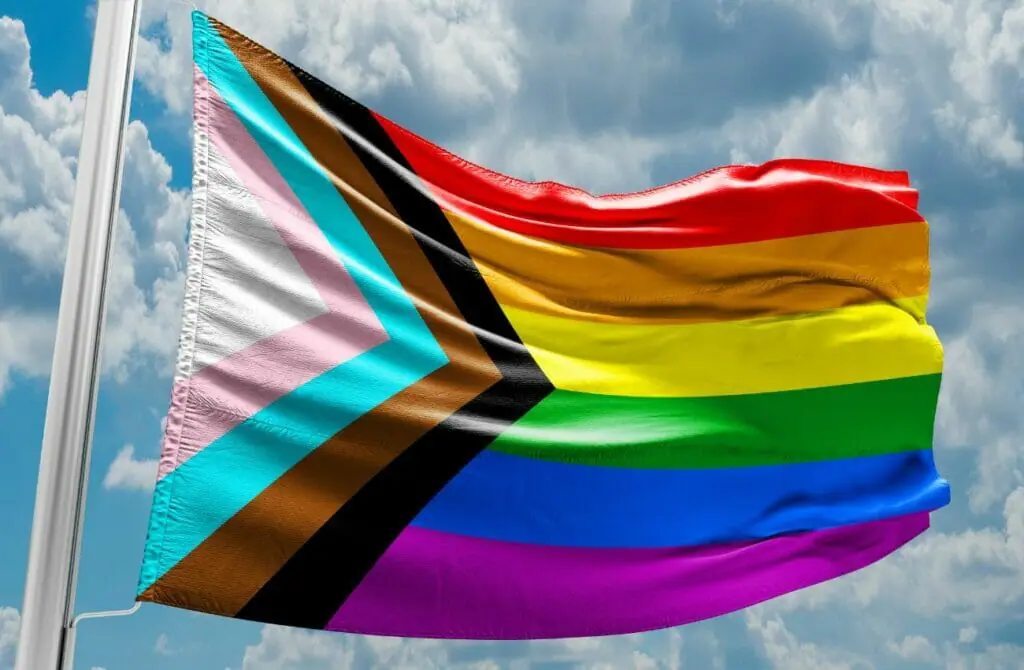LGBT rights in Costa Rica have made significant progress in recent years, with the country emerging as a trailblazer for LGBTQ+ rights within Central America.
In 2020, Costa Rica legalized same-sex marriage, positioning itself as a leader in promoting equality and inclusion. While there have been great advancements, it is essential for both locals and tourists to be mindful of the varying attitudes and circumstances one may encounter.
For travelers and residents alike, it is crucial to remain vigilant and stay updated on current laws and regulations, as situations can change rapidly. It is always wise to seek current advice before traveling or exploring LGBTQ+ rights issues in Costa Rica. Additionally, for those concerned about their safety or legal rights, reaching out to local LGBT advocacy groups for guidance is a valuable resource.
Despite its progress, it is important to exercise caution and remember that bad actors exist in every country. By staying informed and taking necessary precautions, both locals and tourists can safely navigate and enjoy the vibrant LGBTQ+ community that Costa Rica has to offer.
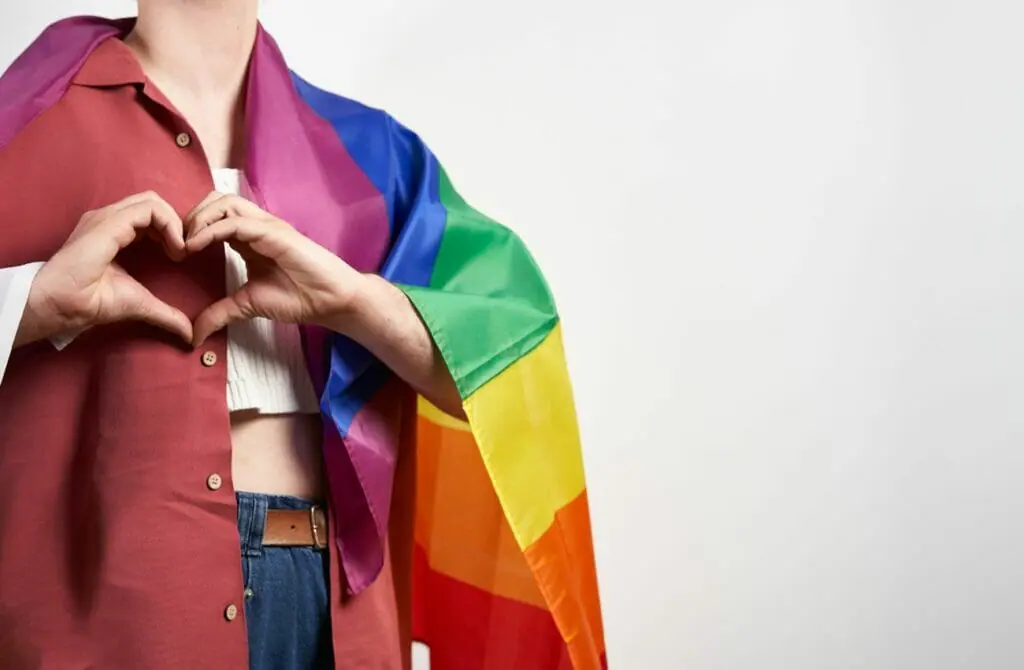
History Of LGBT Rights In Costa Rica
Costa Rica has made significant strides in recent years for the advancement and protection of the rights of the lesbian, gay, bisexual, and transgender (LGBT) community. In July 2018, Costa Rica’s President Carlos Alvarado Quesada issued a public apology to the LGBT community for past persecution and discrimination, acknowledging the state’s role in promoting and executing harmful actions against LGBT people.
In a historic move, Costa Rica became the first Central American country to legalize same-sex marriage on May 26, 2020. This monumental decision has placed the nation among the 29 countries worldwide that have granted marriage equality to same-sex couples. The legalization of same-sex marriage is a remarkable achievement, particularly for LGBT rights in Latin America.
When it comes to the rights of LGBT individuals, local people and tourists alike can expect Costa Rica to provide an inclusive environment. Both locals and visitors can benefit from the progressive steps taken by the government, though everyone should remain vigilant and cautious. It’s essential to be aware that situations can change rapidly, and information might become outdated, so travelers should always seek current advice before visiting a new destination.
There are several LGBT advocacy groups operating in Costa Rica that work tirelessly to promote equality, protect the rights of LGBT individuals, and raise awareness of important issues. Some notable organizations include:
ILGALAC (International Lesbian, Gay, Bisexual, Trans and Intersex Association for Latin America and the Caribbean): A regional branch of the global organization ILGA, this group focuses on promoting LGBT rights across Latin America and the Caribbean, including Costa Rica.
Front For Equal Rights Costa Rica: This local organization is dedicated to promoting and defending the rights of the LGBT community in Costa Rica, with a focus on marriage equality and anti-discrimination initiatives.
Always remember that no matter which country you find yourself in, there will be bad actors, and staying vigilant is the key to ensuring your safety. Costa Rica’s progress on LGBT rights offers a great model for other countries in the region to follow, and it should serve as an example of fostering a more inclusive and equal society for all.
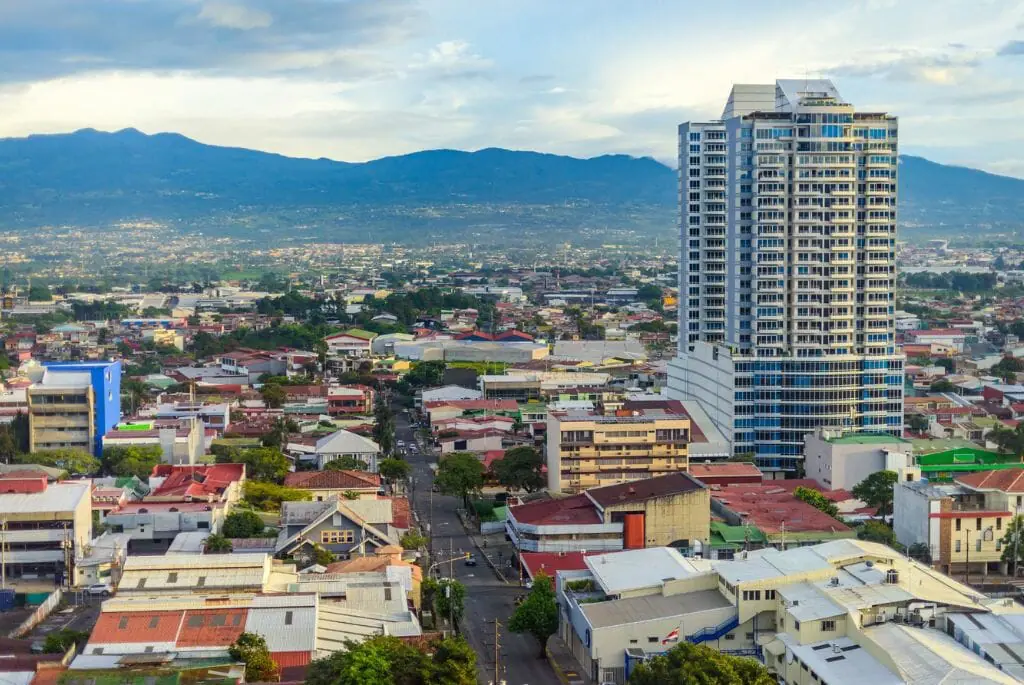
The LGBT Legal Situation In Costa Rica
Costa Rica has made significant strides in recent years regarding LGBT rights. In January 2018, the Inter-American Court of Human Rights mandated the approval of same-sex marriage and adoption for same-sex couples. Additionally, the removal of people’s sex from all Costa Rican ID cards issued since October 2018 was enforced. This progress places Costa Rica at the forefront of LGBT rights in Central America.
The legal situation for both locals and tourists has greatly improved. Homosexuality is legal, and same-sex marriage became legal in May 2020. Anti-discrimination laws cover areas such as employment, and gender changes are allowed without requiring surgery. However, it is essential to remember that the situation can change, and there might be some individuals who still harbor negative attitudes towards the LGBT community.
When visiting Costa Rica, it’s crucial to remain vigilant and always prioritize personal safety, as bad actors can be present in every country. To stay updated on the current situation and any changes in the legal environment, consider reaching out to local LGBT advocacy groups such as Diversidades and the Costa Rican LGBT Chamber of Commerce. They can provide valuable information and assistance, particularly for those who may face unique challenges as a visitor or resident.
Despite the advancements in LGBT rights in Costa Rica, it’s always wise to consider local customs and use discretion when necessary. Avoid attracting unwanted attention, and err on the side of caution to ensure a pleasant and safe experience.
In conclusion, the legal situation for LGBT individuals in Costa Rica is generally positive and continues to make progress. However, always stay informed about the current situation and take necessary precautions when needed. By doing so, you can enjoy everything this beautiful and diverse country has to offer!
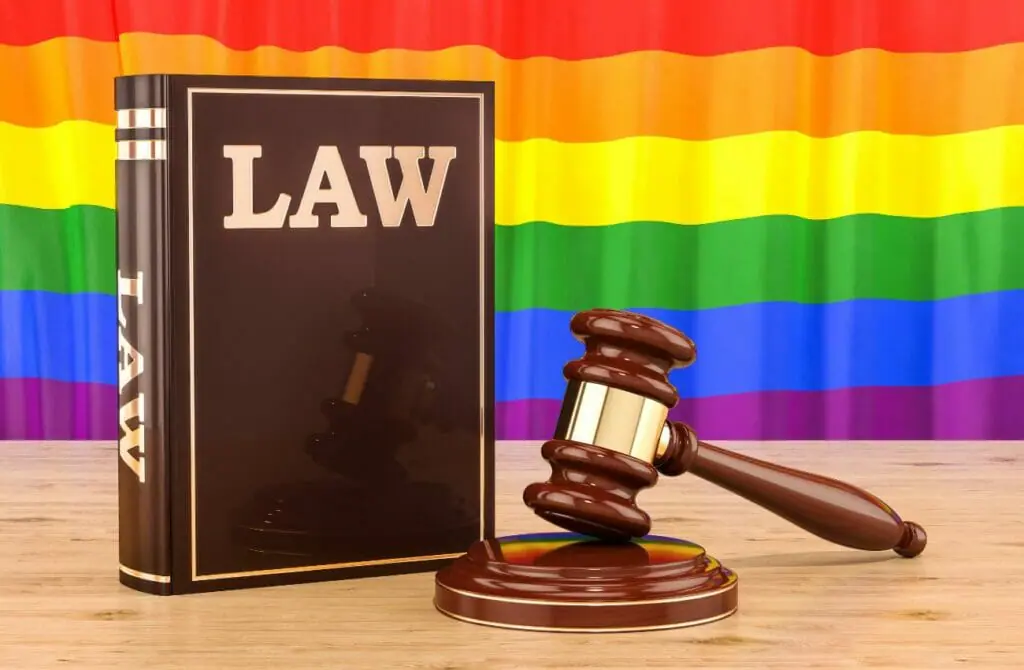

The LGBT Social Situation In Costa Rica
Costa Rica stands as a beacon of progress in Central America for LGBT rights, particularly since the historic 2018 ruling by the Inter-American Court of Human Rights that led to the legalization of same-sex marriage and adoption. This move marks a significant step forward in demonstrating the country’s commitment to LGBTQ+ equality.
Despite these advancements, the journey towards full LGBTQ+ equality in Costa Rica continues. Travelers should stay informed about the current situation and be cautious, as some regions may still hold conservative views or present risks. Legal improvements do not always equate to complete societal acceptance, and vigilance is advised.
In contrast, neighboring countries like Nicaragua, El Salvador, and Honduras have different landscapes regarding LGBT rights. Nicaragua, while not criminalizing same-sex relations, lacks comprehensive legal protections for the LGBT community and has a history of societal discrimination. El Salvador, similarly, does not criminalize homosexuality but has been criticized for its failure to adequately protect LGBT individuals from violence and discrimination. Honduras, on the other hand, faces significant challenges with high levels of violence against the LGBT community, despite legal protections being in place. This comparison highlights the varied approach to LGBT rights within the region and underscores the importance of being aware of these differences, especially for travelers.
For tourists, Costa Rica is generally welcoming, and many businesses cater specifically to LGBTQ+ travelers. However, local LGBTQ+ individuals may still face challenges, such as discrimination in housing and employment. Efforts are ongoing to address these issues, but it is important to recognize the distinction between the experiences of tourists and the daily lives of the local LGBTQ+ community.
To stay informed about the current situation in Costa Rica, consult local resources and advocacy groups, such as the Centro de Investigación y Promoción en Derechos Humanos (CIPAC) and Diversidades CR. These organizations work to promote LGBTQ+ rights and can provide up-to-date information on the social climate and current events.
When traveling, keep in mind that situations can change quickly, and information may become outdated. Always seek current advice before visiting, remain aware of your surroundings, and be respectful of local customs and norms. Costa Rica continues to make progress in promoting LGBTQ+ rights, but it is important to approach this exciting destination with a keen sense of awareness and caution.

Trans Rights In Costa Rica
Costa Rica has made significant progress in the field of transgender rights. Changing one’s gender is legal and does not require surgery, making the process more accessible and respecting the autonomy of transgender individuals. However, the recognition of non-binary gender remains ambiguous.
When it comes to the protection of transgender people, Costa Rica has taken steps like making discrimination based on sexual orientation and gender identity illegal in some contexts. This includes instances of employment and housing discrimination. These legal protections have positively impacted the lives of both locals and tourists within the country.
In order to ensure the safety of transgender individuals, it is essential to be cautious and remain vigilant, as the situation can change, and bad actors can be present in any country. Make sure to seek current advice before traveling, and keep in mind that information can become outdated quickly.
Several LGBT advocacy groups are active in Costa Rica, fighting for the rights and well-being of transgender people. These groups work tirelessly to further the cause and bring awareness to the issues faced by transgender individuals. Connecting with these groups can provide valuable information and support for those in need.
In conclusion, Costa Rica’s steps towards recognizing and protecting transgender rights have been significant, making it a trailblazer in the Central American region. Staying informed, cautious, and connected with advocacy groups is essential for ensuring a safe and enjoyable experience for everyone.


The Future For The Queer Community In Costa Rica
As LGBT rights continue to progress in Costa Rica, both local individuals and tourists can look forward to an increasingly inclusive and accepting environment. The legalization of same-sex marriage in May 2020 marked a significant milestone for the country, positioning it as a leader in Central America and an inspiration for its neighboring nations.
For locals, the future brings hope for further advancements in anti-discrimination laws, particularly in employment and housing. Organizations such as the Center for Research and Promotion of Human Rights in Central America (CIPAC) and It Gets Better Costa Rica play a crucial role in advocating for the rights of the LGBT community and ensuring that they are protected.
Tourists visiting Costa Rica can expect a vibrant and diverse experience, with numerous LGBTQ+-friendly destinations and events celebrating the community. However, it is essential to remain vigilant and aware of one’s surroundings, as situations can change quickly, and there may be individuals in any country with discriminatory attitudes.
If necessary, travelers should take steps to protect themselves and seek current advice before traveling. Staying informed about local laws and customs can make a significant difference in ensuring a safe and enjoyable experience. Reaching out to LGBT advocacy groups or consulting resources such as Equaldex and the U.S. Department of State’s travel advisories can provide valuable, up-to-date information.
In conclusion, maintaining a cautious yet optimistic perspective can help both locals and tourists navigate the ever-evolving landscape of LGBT rights in Costa Rica. With its progressive stance and dedicated advocacy groups, the future looks bright for the LGBTQ+ community in this beautiful Central American country.
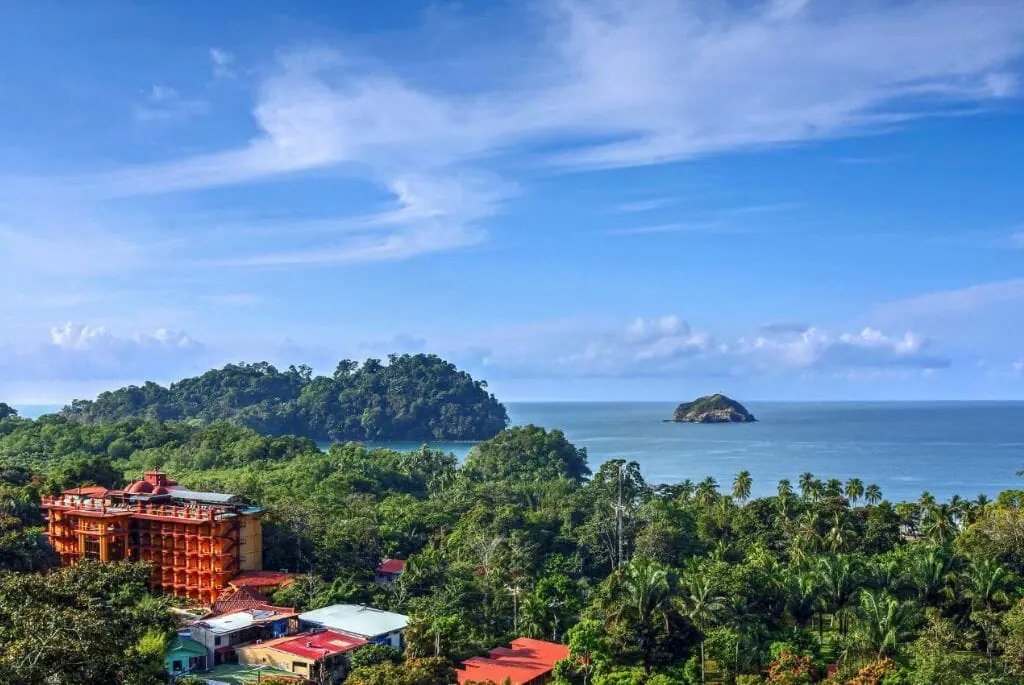
Protect Yourself While Travelling In Gay Costa Rica
Costa Rica has made significant strides in recent years regarding LGBT rights, which has positively impacted both locals and the tourist community. As the first Central American country to legalize same-sex marriage and with increasing societal recognition and acceptance, you can be excited about visiting this beautiful destination.
However, you should always remain vigilant as the situation may change and varying opinions and attitudes persist, just like in any country. Be cautious and discreet when expressing your identity in public, especially outside the bustling, more progressive areas often frequented by tourists.
To ensure your safety and that of others around you, it is essential to be aware of the local laws and cultural nuances. Keep an eye out for any updates, as situations can change rapidly, and information may become out of date. Before traveling, seek current advice from travel agencies, local contacts, or online resources.
In the event that you encounter any issues, reach out to LGBT advocacy groups in Costa Rica, such as the Center for Research and Promotion of Human Rights in Central America (CIPAC) and Diversidad CRC. These organizations work tirelessly to promote, protect, and uphold LGBT rights and can provide support and advice.
By remaining vigilant, respectful of local customs, and mindful of your surroundings, you can enjoy a fantastic and exciting trip to Costa Rica, where the rich tapestry of progress and culture meets the stunning natural beauty this country has to offer.
